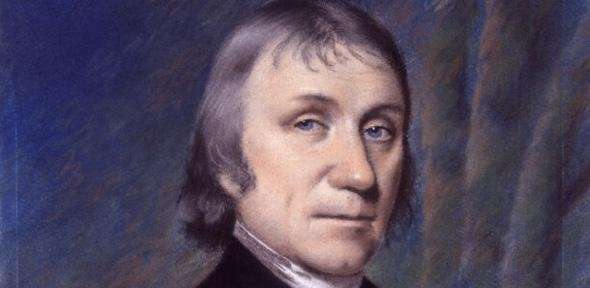Study unearths Britain's first speech therapists

On International Stammering Awareness Day (22 October), a new study reveals that Britain's first speech therapists emerged at least a century earlier than previously thought.
Until now, historians had assumed that John Thelwall became Britain's first speech therapist in the early nineteenth century.
But Cambridge historian Elizabeth Foyster has discovered that James Ford was advertising his services in London as early as 1703, and that many other speech therapists emerged over the course of the eighteenth century.
Ford's advert (pictured), published in the Post Man newspaper on 23 October 1703, states that "he removes Stammering, and other impediments in Speech", as well as teaching "Foreigners to pronounce English like Natives".
Ford had previously worked with the deaf and dumb but realised that there was more money to be made by offering other speech improvement services as a branch of education for wealthy children.
"In the eighteenth century, speaking well was crucial to being accepted in polite society and to succeeding in a profession," said Foyster. "Speech impediments posed a major obstacle and the stress this caused often made a sufferer's speech even worse. At the same time, wealthy parents were made to feel guilty and they started spending increasingly large sums to try to "cure" their children."
By 1703, Ford was based in Newington Green, in the suburbs of London, but twice a week he waited near the city's Royal Exchange and Temple Bar to secure business from merchants, financiers and lawyers desperate to improve their children's life chances.
By 1714, some of these families were seeking out the help of Jacob Wane, a therapist who drew on a 33-year personal struggle with the condition. And by the 1760s, several practitioners were competing for business in London.
"We have lost sight of these origins of speech therapy because historians have been looking to identify a profession which had agreed qualifications for entry, an organising body, scientific methods and standards, as we have today," said Foyster. "In the eighteenth century, speech therapy was regarded as an art not a science. But with its attention to the individual, and the psychological as well as physiological causes of speech defects, we can see the roots of today's speech therapy."
Art and business
Foyster's study, published in the journal Cultural and Social History, shows that speech specialists emerged in the early eighteenth century as new attention was given to the role of the nerves, emotions and psychological origins of speech impediments.
Prior to this, in the seventeenth century, the main cure on offer had involved painful physical intervention including the cutting of tongues. But as speech defects came to be understood as resulting from nervous disorders, entrepreneurial therapists stepped in to end the monopoly of the surgeons.
"These men, and some women, made no claim to medical knowledge," Foyster says. "In fact, some were very keen to emphasise that they were nothing like the surgeons who had caused so much unnecessary pain. They described themselves as 'Artists' and their gentler methods were much more attractive to wealthy clients."
These speech 'artists' jealously guarded their trade secrets but gave away some clues to their methods in print. Close attention was paid to the position of the lips, tongue and mouth; clients were given breathing and voice exercises to practise; and practitioners emphasised the importance of speaking slowly so that every sound could be articulated.
By the 1750s, London's speech therapists had become masters of publicity publishing books, placing advertisements in newspapers and giving lectures in universities and other venues. In 1752, Samuel Angier achieved the remarkable feat of lecturing to Cambridge academics on four occasions about speech impediments and the 'art of pronunciation', despite having never attended university himself.
Foyster has identified several successful speech therapy businesses, some of which were passed down from one generation to the next. Most of these were based in London but practitioners would often follow their clientele to fashionable resort towns such as Bath and Margate.
In 1761, Charles Angier became the third generation to take over his family's business; and by the 1780s, he claimed to be able to remove all speech impediments within six to eight months if his pupils were 'attentive'. By then, he was reported to be charging fifty guineas 'for the Cure' at a time when many Londoners were earning less than ten guineas a year.
To be successful, these entrepreneurs had to separate themselves from quackery. Some heightened their credibility by securing accreditation from respected physicians while others printed testimonials from satisfied clients beneath their newspaper advertisements.
Suffering and determination
Foyster's study also sheds light on the appalling suffering and inspirational determination of stammerers in the eighteenth century, including some well-known figures.
Joseph Priestley (1733-1804), the theologian, scientist and clergyman (pictured), recalled that his worsening stammer made 'preaching very painful, and took from me all chance of recommending myself to any better place'.
His fellow scientist, Erasmus Darwin, also suffered from a stammer, as did Darwin's daughter, Violetta, and eldest son, Charles. In 1775, Darwin compiled detailed instructions to help his daughter overcome her stammer which involved sounding out each letter and practising problematic words for weeks on end.
"It is tempting to think that sympathy for stammering is a very recent phenomenon but a significant change in attitudes took hold in the eighteenth century," said Foyster. "While stammerers continued to be mocked and cruelly treated, polite society became increasingly compassionate, especially when someone demonstrated a willingness to seek specialist help."
More information: Elizabeth Foyster. 'Fear of Giving Offence Makes Me Give the More Offence': Politeness, Speech and Its Impediments in British Society, c.1660–1800, Cultural and Social History (2018). DOI: 10.1080/14780038.2018.1518565
Denyse Rockey. The Logopaedic thought of John Thelwall, 1764-1834: First British Speech Therapist, International Journal of Language & Communication Disorders (2007). DOI: 10.3109/13682827709011313




















